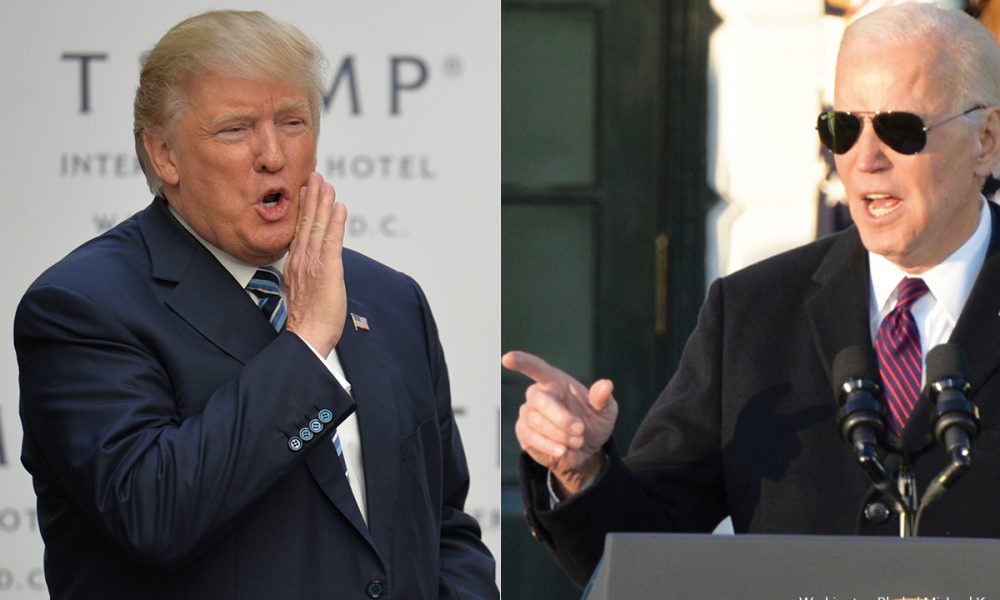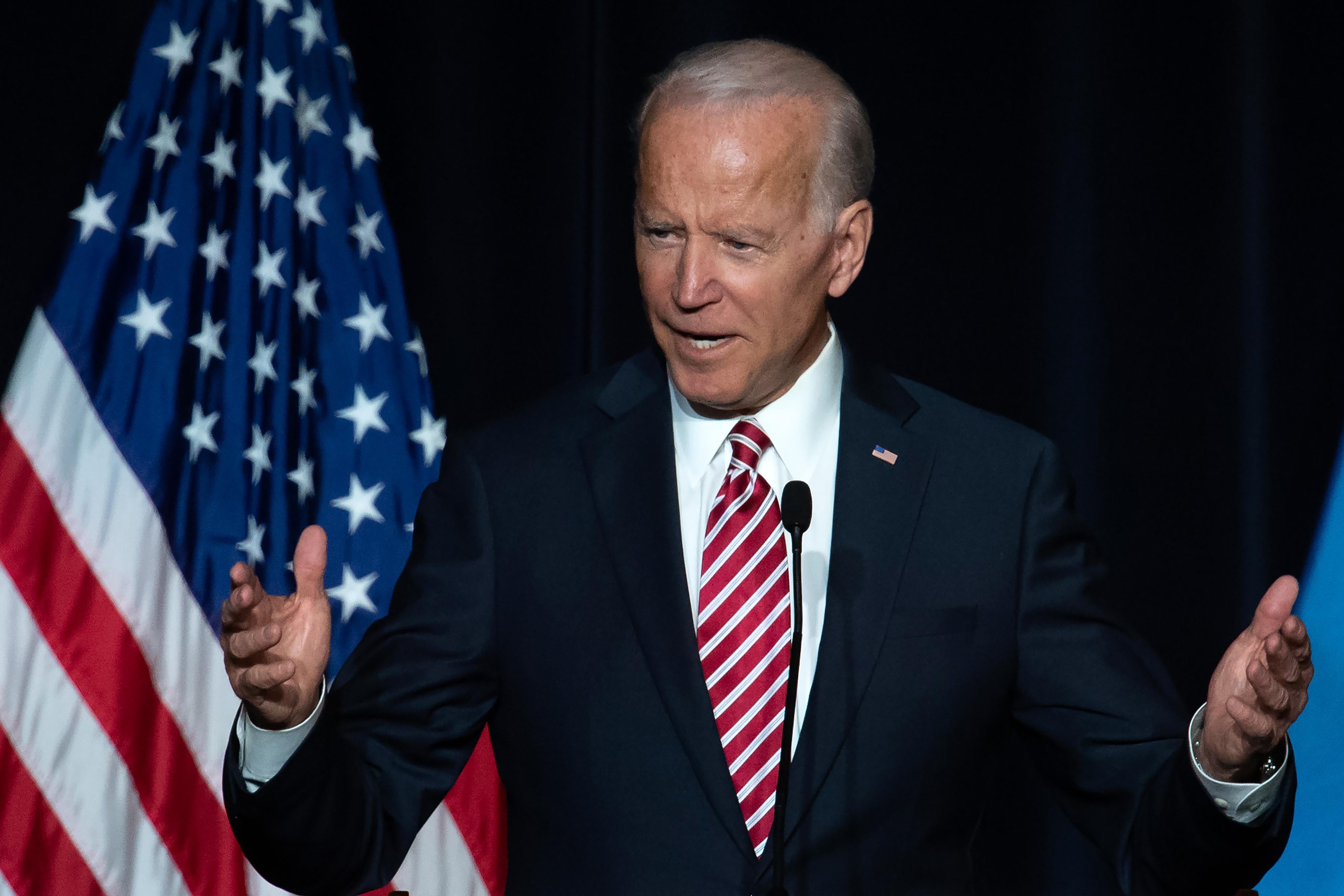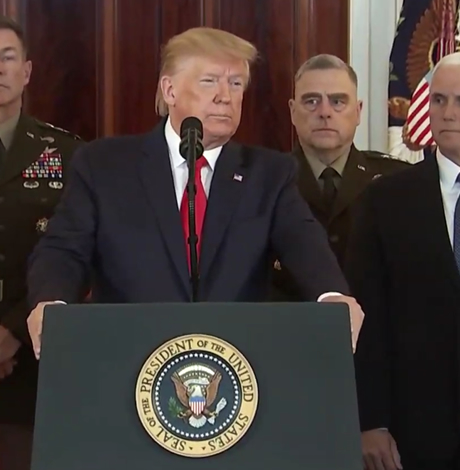
A New York Times poll released this month revealed that more voters believe Donald Trump’s policies benefitted them personally than feel that way about Joe Biden’s policies. We have news for these Americans. The policies you miss are actually Barack Obama’s.
Yes, President Trump passed a massive tax cut for large corporations and the wealthiest Americans. Those voters may rightly cheer the boost to their pocketbook. But what really helped everyone else was that Trump was unable to achieve the draconian budget cuts and other policies he and his team so desperately desired.
Although Trump entered office with a 241 to 194 majority in the House and a 52-48 majority in the Senate, his proposed budget cuts never came close to making it out of Congress. And, most famously of course, Sen. John McCain foiled Trump’s plan to repeal Obamacare, leaving millions of Americans with health care protections that are part of the Trump nostalgia.

Trump’s budget was a work of pure cruelty. In addition to gutting health care, Trump would have cut the Supplemental Nutrition Assistance Program (i.e, food stamps) by $193 million; cut funding for a variety of student loan programs by $143 million; slashed retirement programs for federal employees by $150 million; and eliminated safety net programs such as the low-income housing energy assistance program, community development block grants and school lunches.
Cuts too were slated for scientific research, for job centers aimed at helping young folks get their start and even for the shutting of 49 national historic sites. All this in addition to slashing by 10 percent the budgets for the Departments of Agriculture, Commerce, Education, Health and Human Services, Agriculture, Commerce, Education, Health and Human Services, Housing and Urban Development, Interior, Labor, State and Transportation. In short, Trump wished to take away the things that make Americans a proud and caring people.

Fortunately, GOP majorities in the House couldn’t agree on how to make these budget cuts happen. Some thought the cuts went too far and others wanted to go further still. So in order to pass budgets at all, Trump had to rely on sizable Democratic support on Capitol Hill. Not only that, but the sharp budget cuts Republicans had imposed on Obama in the name of reducing the deficit were no longer operable, meaning that Trump was forced to funnel more money into Democratic priorities, including increases to the safety net and record boosts to health care research.
This meant Trump wound up managing a country with a Republican approach to taxes and a Democratic approach to spending. The deficit ballooned — as Nikki Haley reminded us when she challenged Trump for the 2024 nomination — but federal fiscal stimulus helped keep the Obama boom going.
Why don’t voters understand to what extent Democrats called the tune during Trump’s early years? The answer is simple. Democrats kept as quiet as they could about it. Had Democratic leaders tried to take credit for anything good, Trump would have immediately reversed course. He was willing to give up his plans to dismantle the federal government, as long as no one pointed out how much he was losing.
A GOP Congress swept into office in 2024 would be highly unlikely to keep Trump in check a second time. His current plans to keep taxes low for the rich, gut the environment by increasing the use of fossil fuels, cripple the civil service, ban abortion nationwide and once again try to repeal Obamacare wouldn’t make life better for most Americans. The policies voters actually like come from the Democrats and President Biden.
Jason Paul is a lawyer in Newton, Mass. and author of “Trench Warfare Politics in the Tinder Era.” Jeremy Paul is a professor of Law at Northeastern University.

Biden to roll back Trump’s expansion of short-term health insurance plans

The Biden administration is curtailing short-term health insurance plans, which it calls “junk insurance” that can leave patients contending with big medical bills.
The rule, which was proposed last summer as part of a series of actions aimed at lowering health care costs, limits the duration of new sales of these controversial plans to three months with the option of renewal for a maximum of four months total, the administration said Thursday. It also requires that the plans provide consumers with clear explanations of their benefits, which are typically skimpier than Affordable Care Act policies, and inform them of how to find more comprehensive coverage.
The move is the latest effort by President Joe Biden to contrast his approach to health care with that of former President Donald Trump, who is the presumptive Republican presidential nominee. Trump extended the duration of short-term health insurance plans during his administration in an effort to weaken the Affordable Care Act.
“These junk insurance plans misled consumers into thinking they are buying real health insurance,” Neera Tanden, White House domestic policy adviser, told reporters. “Then when people need medical care, they found out their plans cap their benefits, that their care is related to a preexisting condition, that their care just isn’t covered at all.”
“Right when you need insurance the most, you’re stuck footing a giant bill. That’s not real insurance, that’s a scam,” she continued, noting that Trump’s policy change “really hurt consumers.”
The rule largely reverses the former president’s expansion of short-term plans in 2018, which extended the duration of the policies to just under a year and allowed them to be renewed for a total of up to 36 months. Those who currently have short-term plans will not see changes in their policies.

Short-term plans do not have to adhere to Obamacare’s consumer protections. For instance, they are not required to provide comprehensive coverage, and they can discriminate against people with preexisting conditions.
The Trump administration heralded them as a cheaper alternative to Affordable Care Act policies since the limits on benefits and the healthier set of enrollees allow short-term plans to carry lower premiums.
But Michael Cannon, director of health policy studies at the libertarian Cato Institute, argues Biden’s move will hurt consumers.
“It will create gaps in coverage into which sick patients will fall mid-treatment,” he said. “It will force those patients to face medical underwriting and up to 12 months with no insurance. It will increase the number of uninsured by half a million lives.”
Affordable Care Act supporters fear that short-term plans may draw younger, healthier people away from Obamacare policies since these folks are more likely to be attracted to minimalist coverage. That could leave a larger share of older, sicker Americans in marketplace plans, which could prompt premium increases.
In addition to the short-term health insurance rule, the Department of Health and Human Services on Wednesday unveiled a final rule that makes applying for and renewing coverage in Medicaid and the Children’s Health Insurance Program, known as CHIP, easier for families by standardizing them nationwide and making it simpler for eligible children and adults to remain covered. It also extended some of the consumer protections in the Affordable Care Act to Medicaid and CHIP enrollees, including eliminating annual and lifetime limits on children’s coverage in CHIP.
Children will no longer be locked out of CHIP coverage if their families can’t pay the premiums, and they will no longer be subject to a waiting period for coverage. Also, the rule improves the transfer of children from Medicaid and CHIP when a family’s income rises. And it bars states from conducting renewals more frequently than every 12 months and requiring in-person interviews for older adults and those with disabilities.

Drawing contrasts with Trump
The long-expected curtailment of short-term plans is one of the Biden administration’s recent efforts to lower health care costs and crack down on surprise junk fees, part of its agenda aimed at helping middle- and working-class Americans.
On the campaign trail, Biden has been highlighting the differences in his approach to health care costs, including high drug prices.
A record number of people – more than 21 million – have signed up for 2024 coverage in the Affordable Care Act exchanges. The enhanced federal premium subsidies that congressional Democrats approved soon after Biden took office in 2021 have lured many consumers to Obamacare policies. They expire at the end of next year.
More than 45 million people in total have gained coverage through the Affordable Care Act, according to the Biden administration.
Also, the president has focused on his efforts to reduce drug prices, mainly through the Inflation Reduction Act, including having Medicare negotiate drug prices for the first time and capping the monthly cost of insulin and the annual out-of-pocket drug expenses for Medicare enrollees.
This story has been updated with additional information.





































